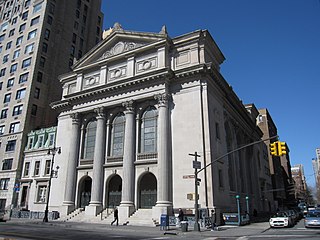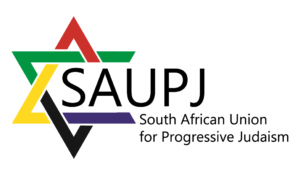Putti is a village in the Pallisa District of Uganda. Putti is inhabited largely by the Abayudaya people. The villagers of Putti are currently undergoing an Orthodox Jewish conversion to Judaism.
Putti is a village in the Pallisa District of Uganda. Putti is inhabited largely by the Abayudaya people. The villagers of Putti are currently undergoing an Orthodox Jewish conversion to Judaism.
Putti is an agrarian village. The community centers around the She'erit Yisra'el Synagogue, which has about 150 members. The congregation is collectively known as the Kahal Kadosh She'erit Yisra'el or KKSY (Holy Congregation Remnant of Israel). Putti villagers currently practice Judaism according to Orthodox (Sephardi) halakha, as candidates for Orthodox conversion. Local members perform berit milah on baby boys at eight days old, keep kashrut, observe the Shabbat, the Jewish holy days and the laws of family purity Taharat haMishpacha.
The community was founded around 1920 when the Chief of the District Semei Kakungulu, angry at the (British) Christians who had betrayed him, felt an affinity for the Jews of the Old Testament. He declared his community would now be Jewish and based their practices on what he understood from reading the Bible and meeting Jewish travelers. After the period of harsh oppression under Idi Amin, a few of the community members visited the Synagogue in Nairobi and connected to traditional Judaism. They began to incorporate the practices they observed into their own worship.
Eventually the worldwide Jewish community became aware of a Jewish presence in Uganda through the efforts of a young peace corp volunteer. Reform and Conservative Jews, impressed with their desire to be Jewish offered to assist them. The majority of Jewish settlements around Mbale accepted this support, which included Jewish artifacts, financial support and non-orthodox conversion and acceptance. However, the community in Putti, to the present day, did not go along with the rest of the Abayudaya and is holding out till the present day in the hope to receive orthodox-accepted conversion.
An interesting latest development occurred in 2012 with the possible recognition of the Putti Abayudaya by Israel and the Orthodox Jewish world, thanks to the efforts of Rabbi Shlomo Riskin, founding Chief Rabbi of Efrat and Chancellor of the Ohr Torah Stone institute, in coordination with PVAO (Putti Village Assistance Organization). A new mikveh (ritual bath) has been built and fundraising efforts are in process to finish a new synagogue. The community is governed by an elected board, currently chaired by Tarphon Kamya. Putti village receives outside support from PVAO (Putti Village Assistance Organization).
During the reign of Idi Amin, a ban was placed on Judaism in Uganda. Many practitioners of Judaism converted to other religions due to the ban. Later, the community called itself 'Remnant of Israel' because as a result of Idi Amin's persecution, the entire community had almost disappeared.
Jewish religious movements, sometimes called "denominations", include diverse groups within Judaism which have developed among Jews from ancient times. Today in the west, the most prominent divisions are between traditionalist Orthodox movements and modernist movements such as Reform Judaism originating in late 18th century Europe, Conservative originating in 19th century Europe, and other smaller ones, including the Reconstructionist and Renewal movements which emerged later in the 20th century in the United States.

Conversion to Judaism is the process by which non-Jews adopt the Jewish religion and become members of the Jewish ethnoreligious community. It thus resembles both conversion to other religions and naturalization. The procedure and requirements for conversion depend on the sponsoring denomination. Furthermore, a conversion done in accordance with one Jewish denomination is not a guarantee of recognition by another denomination. Normally, though not always, the conversions performed by more stringent denominations are recognized by less stringent ones, but not the other way around. A formal conversion is also sometimes undertaken by individuals whose Jewish ancestry is questioned or uncertain, even if they were raised Jewish, but may not actually be considered Jews according to traditional Jewish law.

The Abayudaya are a Jewish community in eastern Uganda, near the town of Mbale. They are devout in their practice, keeping kashrut and observing Shabbat. There are several different villages where the Abayudaya live. A community that converted to Judaism in the 20th century, most community members are affiliated with the Reform and Conservative movements of Judaism. In June 2016, Rabbi Shlomo Riskin led a Beit Din that performed an Orthodox conversion for the Putti community of Abayudaya.

African Jewish communities include:
"Who is a Jew?" is a basic question about Jewish identity and considerations of Jewish self-identification. The question pertains to ideas about Jewish personhood, which have cultural, ethnic, religious, political, genealogical, and personal dimensions. Orthodox Judaism and Conservative Judaism follow Jewish law (halakha), deeming people to be Jewish if their mothers are Jewish or if they underwent a halakhic conversion. Reform Judaism and Reconstructionist Judaism accept both matrilineal and patrilineal descent as well as conversion. Karaite Judaism predominantly follows patrilineal descent as well as conversion.

The Israel Movement for Reform and Progressive Judaism is the organizational branch of Progressive Judaism in Israel, and a member organization of the World Union for Progressive Judaism. It currently has 40 communities and congregations around the state of Israel, 13 of which are new congregations – referred to as U'faratztah communities – and two kibbutzim, Yahel and Lotan.

Congregation Mikveh Israel, is a Sephardic Orthodox Jewish synagogue located at 44 North Fourth Street in Philadelphia, Pennsylvania, in the United States. The congregation traces its history from 1740. Mikveh Israel is a Spanish and Portuguese congregation that follows the rite of the Amsterdam esnoga. It is the oldest synagogue in Philadelphia, and the longest running in the United States.

The Congregation Shearith Israel, often called The Spanish and Portuguese Synagogue, is an Orthodox Jewish synagogue located at 2 West 70th Street, at Central Park West, on the Upper West Side of Manhattan in New York City, New York, United States.

Sabato Morais was an Italian-American rabbi of Portuguese descent, leader of Mikveh Israel Synagogue in Philadelphia, pioneer of Italian Jewish Studies in America, and founder of the Jewish Theological Seminary, which initially acted as a center of education for Orthodox Rabbis.

Rabbi Arie Zeev Raskin is the Chief Rabbi of Cyprus and the first rabbi on the island in many years.

Congregation Beth Israel Ner Tamid is an egalitarian Conservative synagogue located at 6880 North Green Bay Road in Glendale, a suburb north of Milwaukee, Wisconsin, in the United States.

Yearning to Belong is a documentary about the Abayudaya Jews in Uganda and their struggle to be recognized by the international Jewish community.

Gershom Sizomu is a Ugandan rabbi serving the Abayudaya, a Baganda community in eastern Uganda near the town of Mbale who practice Judaism. Sizomu is the first native-born black rabbi in Sub-Saharan Africa. He is also the first Chief Rabbi of Uganda. Sizomu is a member of the Ugandan Parliament.
Orthodox Jewish feminism is a movement in Orthodox Judaism which seeks to further the cause of a more egalitarian approach to Jewish practice within the bounds of Jewish Law. The major organizations of this movement is the Jewish Orthodox Feminist Alliance (JOFA) in North America, and Women of the Wall (WOW) and its affiliates in Israel and internationally, known as The International Committee for Women of the Wall (ICWOW). In Israel, the leading Orthodox feminist organization is Kolech, founded by Dr. Chana Kehat. In Australia, there is one Orthodox partnership minyan, Shira Hadasha, in Melbourne.

Aaron L. Raskin is an American Chabad Lubavitch rabbi and writer. He serves as spiritual leader of Congregation B'nai Avraham, an Orthodox synagogue in Brooklyn Heights, New York, and dean of Brooklyn Heights Jewish Academy.

Israel–Uganda relations refers to the current and historical relationship between Israel and Uganda. Neither country has a resident ambassador. Uganda has a non-resident ambassador in Cairo.

Igbo Jews are members of the Igbo people of Nigeria who practice Judaism. It is a tenet of their beliefs that they have ties to one of the lost tribes of Israel, the tribe of Gad.
Masorti Olami is the international umbrella organization for Masorti Judaism, founded in 1957 with the goal of making Masorti Judaism a force in the Jewish world. Masorti Olami is affiliated with communities in over 36 countries, representing with partners in Israel and North America close to two million people worldwide, both registered members and non-member identifiers. Masorti Olami builds, renews, and strengthens Jewish life throughout the world, with efforts that focus on existing and developing communities in Europe, Latin America, the former Soviet Union, Africa, Asia, and Australia. More than 140 kehillot (communities) are affiliated with Masorti Olami in Argentina, Aruba, Australia, Bolivia, Brazil, Chile, Colombia, Cuba, the Czech Republic, Ecuador, El Salvador, France, Germany, Honduras, Hungary, India, Israel, Italy, Japan, Kenya, Mexico, the Netherlands, Paraguay, Peru, Poland, Portugal, Russia, South Africa, Spain, Sweden, Uganda, Ukraine, Uruguay, the United Kingdom and additionally, more than 600 in Canada and the United States and over 80 communities in Israel. All of Masorti Olami's activities are conducted within the context of the overall Conservative Judaism movement, in close cooperation with its affiliated organizations in North America and Israel. The current executive director is Rabbi Mauricio Balter.

The South African Union for Progressive Judaism (SAUPJ) is an affiliate of the World Union for Progressive Judaism and supports 11 progressive congregations. Rabbi Moses Cyrus Weiler, a founder of Reform Judaism in the country, led the country's first Reform synagogue, Temple Israel in Hillbrow, Johannesburg. Weiler is credited with growing the movement, to represent 15-17% of South African Jewry and establishing 25 congregations in the country. A 2020 joint study by the Institute for Jewish Policy Research and the University of Cape Town showed that 12% of Jews identified as Progressive and that in relative terms the progressive strands are increasing after falling to 7% in 1998 and 2005 studies. In Johannesburg, the community accounts for 7% of the city's Jewry, rising to 18% in Cape Town and 25% in Durban.